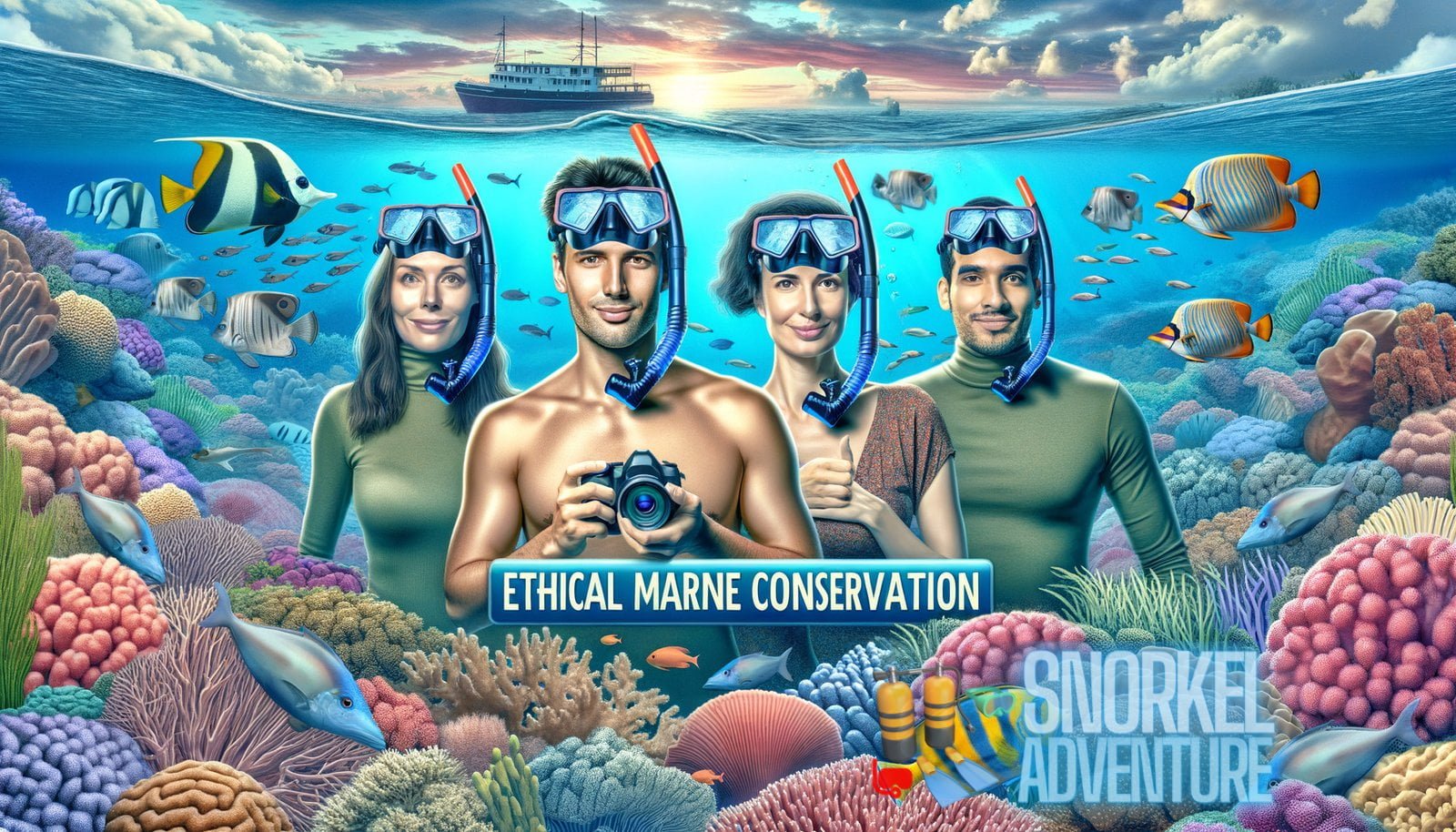Exploring the Silent Guardians: The Connection Between Snorkeling and Marine Conservation
Snorkeling is a popular recreational activity that allows individuals to immerse themselves in the underwater world and witness the mesmerizing beauty of marine ecosystems. Beyond the awe-inspiring sights, snorkeling also serves as a valuable tool for marine conservation.
The Importance of Marine Conservation
Marine conservation is crucial for preserving the delicate balance of the world’s oceans. Oceans cover approximately 70% of the Earth’s surface and harbor a vast array of life forms, from microscopic phytoplankton to majestic marine mammals. These marine ecosystems provide numerous ecosystem services, including oxygen production, carbon sequestration, biodiversity, and climate regulation. Additionally, oceans are a rich source of food and livelihood for millions of people worldwide.
However, marine ecosystems are currently facing numerous threats. Climate change, overfishing, pollution, habitat destruction, and invasive species are just a few of the challenges that pose a significant risk to the health and well-being of marine ecosystems. Without effective conservation efforts, these diverse and vibrant ecosystems may face irreversible damage, leading to the loss of biodiversity and essential ecosystem services.
The Role of Snorkeling in Marine Conservation
Snorkeling offers a unique opportunity to explore the underwater world and connect with marine life in its natural habitat. While it may seem like a harmless activity, snorkeling can play a vital role in marine conservation through the following ways:
1. Educating and Raising Awareness
Snorkeling provides an up-close and personal experience with marine life, allowing individuals to witness the beauty and significance of these ecosystems firsthand. By engaging with marine life, snorkelers can develop a sense of awe and appreciation for the underwater world. This immersive experience can serve as a powerful educational tool in raising awareness about marine conservation issues, such as the importance of protecting fragile coral reefs, the impacts of climate change on marine ecosystems, and the need for sustainable fishing practices.
By promoting a greater understanding of marine conservation, snorkeling can inspire individuals to take action and make environmentally conscious choices in their daily lives. This awareness can lead to the adoption of more sustainable practices, such as reducing single-use plastic consumption, supporting sustainable seafood options, and advocating for the protection of marine reserves.
2. Citizen Science and Data Collection
Snorkelers have the potential to contribute valuable data to ongoing marine research projects through citizen science initiatives. These programs allow snorkelers to collect observations, photos, and data on marine species, habitat conditions, and biodiversity. By participating in citizen science, snorkelers can contribute to scientific knowledge and help researchers monitor the health of marine ecosystems.
3. Sustainable Snorkeling Practices
Snorkeling can be carried out in an environmentally responsible manner by adopting sustainable practices. These practices include:
- Using reef-safe sunscreen to prevent harmful chemicals from polluting the water and damaging fragile coral reefs.
- Respecting wildlife and keeping a safe distance to avoid causing stress or harm to marine animals.
- Avoiding standing or touching coral reefs, as this can cause irreparable damage to their delicate structures.
- Refraining from feeding marine animals, as it disrupts their natural feeding behaviors and can lead to dependency.
- Supporting local, community-based eco-tourism initiatives that prioritize environmental sustainability.
The Silent Guardians: Biodiversity Hotspots
As snorkelers venture into the underwater realm, they have the opportunity to witness the incredible biodiversity that thrives beneath the surface. Biodiversity hotspots are areas that have a high concentration of endemic and threatened species. These hotspots are of great conservation value as they represent unique and irreplaceable ecosystems.
Snorkelers can explore various biodiversity hotspots around the world, including:
- The Great Barrier Reef in Australia, which is the largest coral reef ecosystem on the planet and is home to an extraordinary array of marine life.
- The Coral Triangle, encompassing the waters of Indonesia, the Philippines, and Papua New Guinea, which is known as the “Amazon of the Seas” due to its unparalleled marine biodiversity.
- The Maldives, renowned for its crystal-clear waters and vibrant coral reefs that support a diverse range of marine species.
- The Galapagos Islands, which inspired Charles Darwin’s theory of evolution and are teeming with unique species found nowhere else on Earth.
Exploring these biodiversity hotspots through snorkeling not only provides a memorable experience but also highlights the importance of their conservation. These ecosystems are not only beautiful but are also fragile and extremely vulnerable to human-induced threats. By snorkeling in these areas, individuals can witness firsthand the need to protect and preserve these biodiversity hotspots for future generations.
Creating a Sustainable Snorkeling Future
As the popularity of snorkeling continues to grow, it is crucial to ensure that this activity is carried out in a sustainable and responsible manner. Here are some ways to promote sustainable snorkeling practices:
1. Conservation-focused Snorkeling Tours
Choose snorkeling tour operators that prioritize environmental sustainability and conservation. Look for operators that have partnerships with marine conservation organizations, follow best practices for wildlife encounters, and emphasize education and awareness in their tours.
2. Support Marine Protected Areas
Snorkel in marine protected areas that have been designated for conservation purposes. These areas often have restrictions in place to protect fragile ecosystems and limit human impact. By supporting marine protected areas, you contribute to the preservation of these important habitats and help maintain their long-term health.
3. Engage in Marine Stewardship
Become a marine steward by actively participating in conservation efforts. This can involve volunteering for beach clean-ups, joining local marine conservation organizations, or supporting campaigns and initiatives aimed at protecting marine ecosystems. By actively engaging in marine stewardship, you become an advocate for the health and preservation of the oceans.
The Connection Between Snorkeling and Marine Conservation: An Unbreakable Bond
Snorkeling is not only a thrilling activity but also a powerful tool for marine conservation. By facilitating education, raising awareness, collecting data, and promoting sustainable practices, snorkeling helps to protect and preserve marine ecosystems. The silent guardians of the ocean depend on our collective efforts to ensure their survival, and snorkeling offers a unique opportunity for individuals to become ambassadors for the underwater world.
For more information on sustainable snorkeling and marine stewardship, check out these articles: An article available at https://snorkeladventures.site/environmental-considerations/sustainable-snorkeling-2/ and An article available at https://snorkeladventures.site/environmental-considerations/marine-stewardship/.

